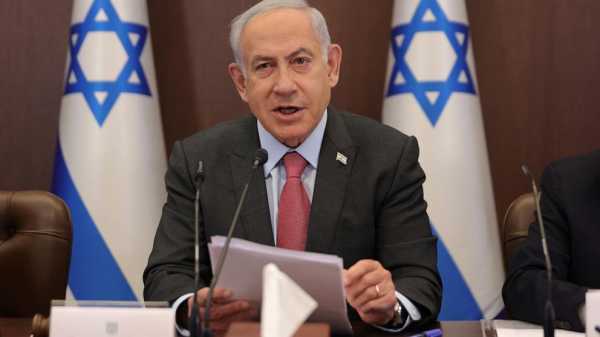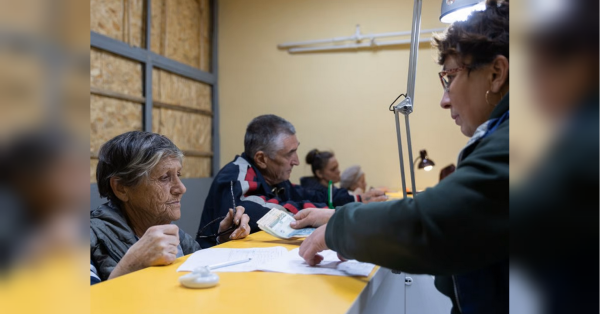
JERUSALEM — Israeli lawmakers on Tuesday repealed a 2005 act that saw four Jewish settlements in the occupied West Bank dismantled at the same time as Israeli forces withdraw from the Gaza Strip. The development could pave the way for an official return to the abandoned West Bank areas and further deepen the crisis.
It was the latest move by Prime Minister Benjamin Netanyahu’s far-right government, which is dominated by settler leaders and allies, to promote settlement activity in the territory.
The international community, including Israel’s closest ally, the United States, considers settlements illegal and opposes construction on occupied territories claimed by the Palestinians for a future independent state.
Israel evacuated the four settlements and unilaterally pulled out of Gaza under the 2005 legislation. The prime minister at the time, Ariel Sharon, argued that Israel would not be able to keep the settlements under a future agreement with the Palestinians.
Since then, Israeli citizens have been officially banned from returning to those locations, though the Israeli military has allowed activists to visit and pray there — a ban that has now been revoked.
Netanyahu’s government has put settlement expansion at the top of its agenda and has already advanced thousands of new settlement housing units and retroactively authorized nine wildcat outposts in the West Bank.
This week, Israel pledged to put a temporary freeze on further settlement approvals, including authorization of outposts, as part of a series of measures meant to ease tensions ahead of the sensitive period that includes the Muslim holy month of Ramadan and the Jewish festival of Passover.
Still, ultranationalist members of Netanyahu’s coalition pushed for a repeal of the ban on the northern West Bank settlements. The legislation passed in an overnight vote 31-18 in the 120-seat Knesset. The remaining lawmakers did not vote.
The vote came as Netanyahu’s government is pushing ahead with a separate plan to overhaul the country’s judicial system. Netanyahu’s allies claim the courts have too much power in the legislative process and that the Supreme Court is biased against settlers. Critics say the overhaul would upend the country’s delicate system of checks and balances and push Israel toward authoritarianism. They also say Netanyahu could find an escape route from his corruption trial through the overhaul.
Itamar Ben-Gvir, an ultranationalist West Bank settler now serving as minister in charge of police, said on Tuesday that the repeal of the ban on was “the beginning of correcting a historic injustice” and pledged to continue settlement expansion.
The Palestinians seek the West Bank and Gaza Strip as an independent state, with east Jerusalem as its capital. Israel captured those territories in the 1967 Mideast war.
Since then, more than 700,000 Israelis have moved into dozens of Jewish settlements in the West Bank and east Jerusalem. Most of the international community says the settlements are an obstacle to peace with the Palestinians.
Two years after Israel’s withdrawal from Gaza, the Hamas militant group seized control of the territory from the forces of Palestinian President Mahmoud Abbas. Israel and Egypt have imposed a blockade on the territory, but Hamas, which opposes Israel’s existence and has fought four wars against Israel, remains firmly in control.
Tuesday's repeal comes against the backdrop of the worst Israeli-Palestinian fighting in recent years and as concerns grow of intensified violence during Ramadan, which will start this week.
Israeli forces have carried out almost nightly arrest raids across the occupied West Bank over the past year. The incursions began after a string of deadly attacks in Israel last spring and have provoked a fierce response from Palestinians.
So far this year, 85 Palestinians have been killed by Israeli fire, and Palestinian attackers have killed 15 Israelis, according to a tally by The Associated Press.
Israel says most of the Palestinians killed have been militants. But stone-throwing youths protesting the incursions and people not involved in the confrontations have also been killed. All but one of the Israeli deaths were civilians.
Sourse: abcnews.go.com






